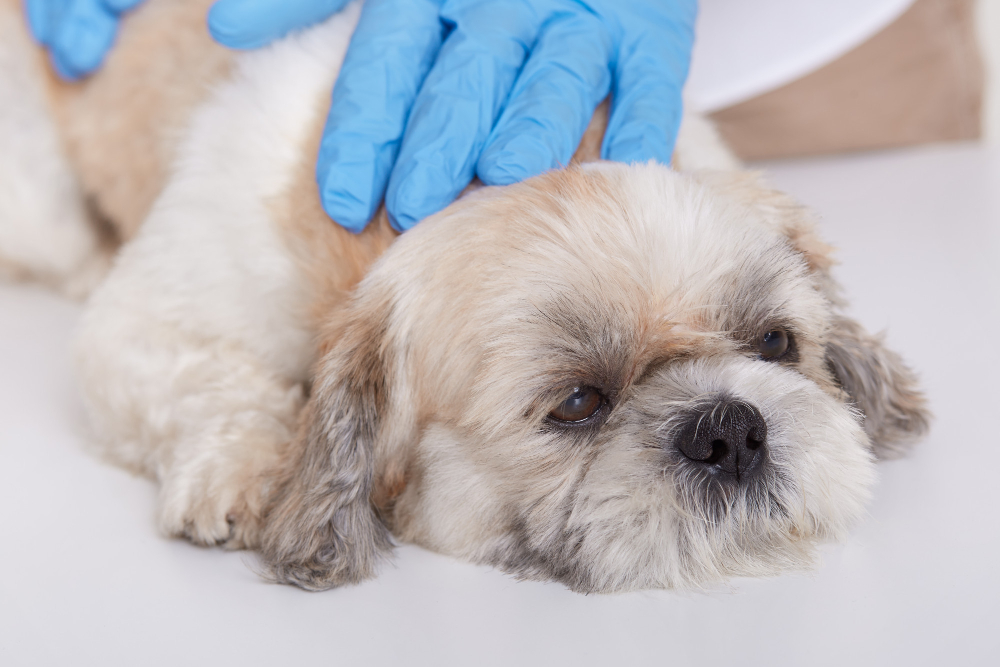Prevent Heat-Related Illness in Pets: Wellness Tips for Florida Owners


Prevent Heat-Related Illness in Pets: Wellness Tips for Florida Owners
Florida’s abundant sunshine and tropical climate are part of what makes living in Winter Garden and the surrounding communities so enjoyable, but these same warm, humid conditions can place our pets at risk for heat-related illness. As September brings lingering summer temperatures, pet owners often wonder how to keep their dogs and cats safe from heat exhaustion, dehydration, and other temperature-related health concerns. At Hamlin Animal Hospital, conveniently located at 14410 Shoreside Way, Winter Garden, FL 34787, we understand your concerns and are here to help you protect your pet’s health throughout the hottest months.
This blog will guide you through the key signs of heat-related illness in pets, explain why pets in Florida are particularly vulnerable, and provide practical pet wellness tips designed for our local climate. You will also learn when it’s time to schedule a wellness examination, how to adjust daily routines, and which steps you can take to prevent serious complications. As your local resource for veterinary services in Winter Garden, we invite you to reach out to our veterinary team with any questions about keeping your pet comfortable and safe. For more in-depth guidance on preventive care, you can also explore our pet safety articles for additional wellness information.
Recognizing Heat-Related Illness in Pets: Signs Every Florida Owner Should Know
Understanding the early indicators of heat-related illness in pets can make a lifesaving difference, especially in Florida’s intense climate. Dogs and cats do not sweat the way humans do; instead, they primarily regulate temperature through panting and limited sweat glands in their paw pads. When these mechanisms are overwhelmed by high heat and humidity, the risk of heat exhaustion or heatstroke increases.
Key symptoms of heat-related illness in pets include excessive panting, drooling, increased heart rate, and signs of lethargy or weakness. You may also notice that your pet is unsteady on their feet, seeking shade or cool surfaces, or refusing food and water. As the condition progresses, additional warning signs may appear such as vomiting, diarrhea, bright red or pale gums, rapid breathing, or even collapse. Cats tend to hide or become unusually quiet when unwell, while dogs might appear restless or anxious before showing more severe symptoms.
It’s important to note that heat-related illness in pets can escalate quickly. Even seemingly mild symptoms can progress to a life-threatening emergency if not addressed promptly. If you observe any of these warning signs, especially during or after outdoor activity, it’s time to take immediate action to cool your pet and contact your local veterinarian.
Why Heat-Related Illness Happens: Understanding the Florida Factor
Florida’s climate creates unique challenges for pet owners because high temperatures are often accompanied by humidity. Humid air prevents the evaporation of moisture from the skin and respiratory tract, making it difficult for pets to cool down efficiently. For pets in Winter Garden, this means that even shaded areas and early morning walks can sometimes pose a risk during the late summer and early fall.
Certain pets are more susceptible to heat-related illness in pets than others. Factors that increase risk include breeds with short muzzles (such as Bulldogs and Pugs), pets with thick or dark coats, older animals, those with chronic health conditions, and overweight pets. Additionally, dogs and cats who spend a lot of time outdoors, exercise vigorously, or are confined to poorly ventilated spaces (such as cars or garages) face higher risks in the Florida heat.
Owners sometimes underestimate how quickly a pet can overheat, especially during routine outings like walks, play sessions, or car rides. The pavement temperature can soar well above the air temperature, causing burns to paw pads and increasing overall body heat. Even brief periods in a car with the windows cracked open can quickly become dangerous, as the internal temperature rises much faster than most people expect. By understanding these environmental and pet-specific risk factors, you are better equipped to prevent heat-related illness in your furry family members.
Professional Treatment and Veterinary Support for Heat-Related Illness in Winter Garden
When pets experience heat-related illness, prompt and appropriate veterinary care is essential for a positive outcome. At Hamlin Animal Hospital, our veterinary professionals are trained to assess, stabilize, and treat pets suffering from heat exhaustion or heatstroke. Treatment approaches involve immediate cooling measures such as applying cool (not cold) water to the coat, placing your pet near a fan, and offering small amounts of water if the pet is alert enough to drink. Once your pet arrives at the clinic, our veterinary team may provide intravenous fluids to combat dehydration, monitor vital signs closely, and address any complications such as organ dysfunction or neurological symptoms.
In some cases, additional diagnostics such as blood work or imaging may be necessary to assess the extent of heat-related damage. Pets with severe symptoms might require hospitalization for intensive monitoring and supportive care. Our team will also discuss preventive strategies and recommend a follow-up wellness examination to ensure your pet’s full recovery and ongoing health.
If your pet has experienced a heat-related incident, we strongly recommend scheduling a comprehensive pet exam to check for any lingering effects and discuss tailored preventive measures. Early intervention can make all the difference in protecting your pet’s long-term health and quality of life.
Preventing Heat-Related Illness: Home Care and Daily Routine Adjustments
Proactive prevention is the best way to keep your pets safe from heat-related illness in pets during Florida’s hot months. Steps you can take at home include providing constant access to fresh, cool water, ensuring your pets have shaded or air-conditioned spaces to rest, and avoiding outdoor activities during the hottest parts of the day, which typically fall between 10 a.m. and 4 p.m. Shortening walks, choosing grassy or shaded routes, and using pet-safe sunscreen on exposed areas (especially for light-coated pets) can further reduce risk.
Adjusting your daily routine may involve exercising pets early in the morning or later in the evening when temperatures are lower. For pets who enjoy car rides, it is crucial never to leave them unattended in a parked vehicle, regardless of the weather or duration. If your pet is especially sensitive to heat, consider indoor play activities, puzzle toys, or cooling mats to provide stimulation without the risk of overheating.
Regular wellness checks are a vital part of prevention, particularly for pets with underlying health conditions or a history of heat-related problems. During a routine wellness examination at Hamlin Animal Hospital, our veterinary team can assess your pet’s risk factors, review their current health status, and provide customized advice for managing the Florida climate. For more pet wellness tips in Florida, our learning center offers helpful articles and resources that support safe pet ownership in our region.
When to Seek Veterinary Care for Heat-Related Illness in Pets
Immediate veterinary attention is crucial if your pet shows signs of heat-related illness that do not resolve quickly with cooling measures. If your dog or cat is panting excessively, becomes weak or unresponsive, vomits repeatedly, or collapses, seek professional help right away. Time is of the essence, as heatstroke can cause permanent organ damage or even be fatal if untreated.
In less severe cases, if your pet has experienced a brief episode of overheating but seems to recover quickly, it is still wise to schedule a follow-up with your veterinarian. Pets who have suffered from heat-related illness in pets are more likely to develop complications or repeat episodes, so ongoing monitoring and preventive care are essential. If you’re unsure whether your pet’s symptoms require urgent care, our team is always available to provide guidance and support.
For urgent health concerns outside of heat-related illness, Hamlin Animal Hospital also offers urgent care services for pets in Winter Garden and the surrounding communities, providing peace of mind when unexpected issues arise.
Keeping Your Pet Safe in the Florida Heat: Your Local Partner in Pet Wellness
As a pet owner in Winter Garden, you play a vital role in protecting your beloved companions from the dangers of heat-related illness in pets. By recognizing early warning signs, understanding the unique risks of our local climate, and making thoughtful adjustments to your daily routine, you can help your pet thrive all year long. At Hamlin Animal Hospital, our commitment to preventive care means we are always here to answer your questions, provide wellness recommendations, and support your pet’s health at every stage of life.
If you have concerns about your pet’s response to the Florida heat or would like to schedule a wellness examination, we invite you to contact our friendly veterinary team. Scheduling an appointment is easy; simply call (407) 872-7772 or visit our Winter Garden location for comprehensive care. When searching for a "vet near me" who truly understands the demands of our local climate, you can trust Hamlin Animal Hospital to deliver quality veterinary services in Winter Garden and beyond. For more pet wellness tips in Florida and to learn about all our services, explore our pet safety articles and let us help you and your pet enjoy many safe, healthy years together.
This blog is intended for informational purposes only and should not replace professional veterinary advice. If your pet is experiencing symptoms of heat-related illness, seek immediate veterinary care.





















